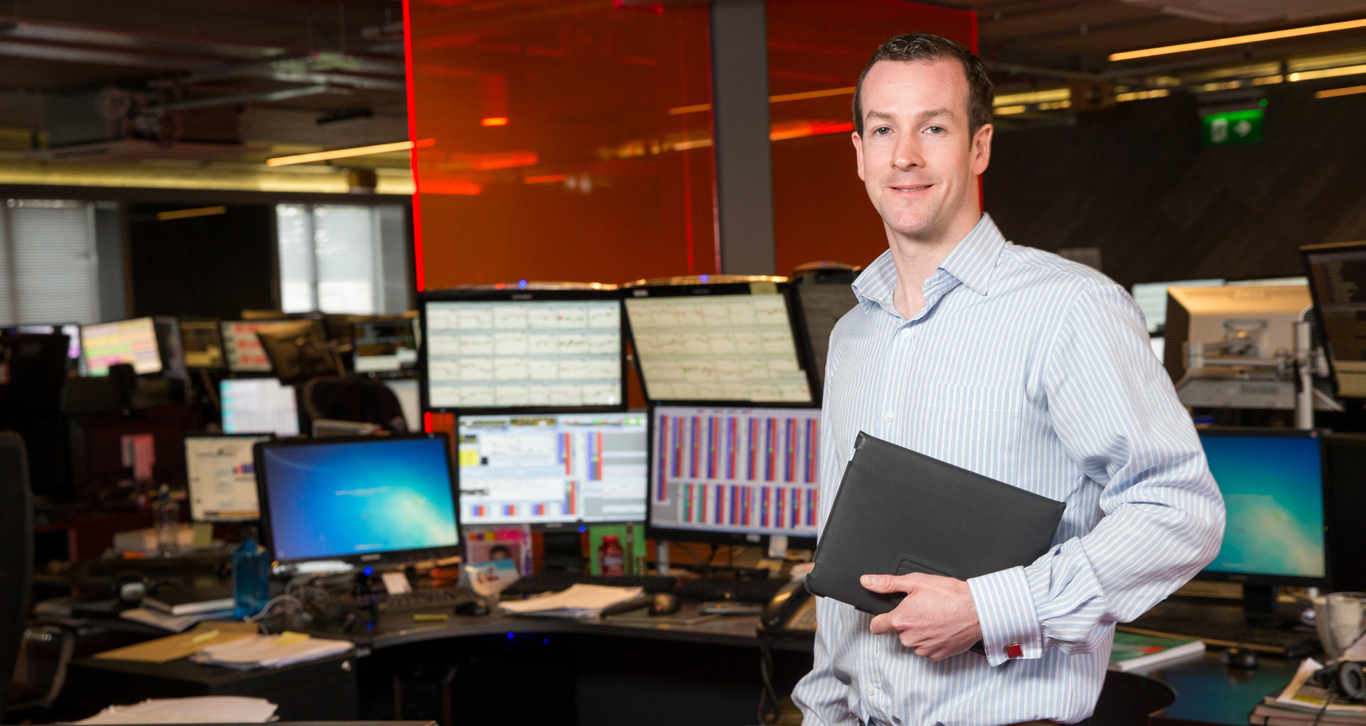'I put my life savings on the table to start my company. It didn't seem like a risk'
As part of our How My Business Works series, we profile Dublin trading company Positive Equity.
AFTER THREE YEARS working as a stockbroker in Dublin, John White decided he needed a trek through the Amazon rainforest to clear his head.
The Dubliner went straight into working on a trading floor after completing an MBS in UCD’s Smurfit business school at 22 in 2002. A tough job requiring long hours and intense focus, White was starting to feel his motivation ebb.
“In my second year I performed reasonably well, but in my third I stagnated, I felt that I wasn’t learning as much as I needed to,” he tells Fora.
He used his savings to catch a flight to Buenos Aires, where he stayed with a friend for a few days before travelling to Rio de Janeiro and from there on to the Amazon, the largest rainforest on Earth.
“I was a bit scared; I didn’t have much savings, just enough to survive,” he says. “There are some travel companies in Manaus that will throw you out there and into a hut. I went in with a tour guide who didn’t have much English.
“Trekking through the jungle and getting to see everything was amazing.”
White spent a few weeks in Brazil, during which he thought about what he wanted to do with his life. Upon reflection, he decided he wanted to give trading another shot.
He was interviewed for his first position by a trader Jason Berry, who was just a few years his senior. Upon returning to Ireland he linked up with the Berry again at the Dublin office of a UK-based firm called Saxon Financials.
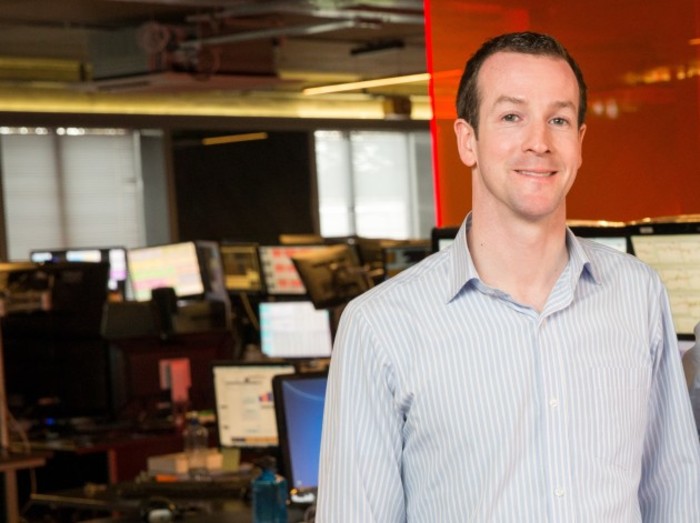 Positive Equity co-founder John White
Positive Equity co-founder John White
Saxon was investing money in algorithmic trading, a way for the company to automate parts many of the deals carried out by its staff. The experiment proved to be a failure and the company started to run low on cash.
With the financial crisis just getting underway, White, alongside Berry and the managing director of Saxon’s Dublin branch, Jim Aveling, decided to lead a buyout of the company’s Dublin office, assuming its assets and liabilities.
Sleepless nights
The trio renamed the firm, which had a team of about 10 people, to Positive Equity and looked to trade their way through the crisis.
“Every day we would come in and you’d see in the Metro: job losses, bank jobs gone, doom and gloom. Everyone in my family took a salary cut,” he says.
“When the market is volatile, it’s riskier, but there are more opportunities. Even though we were small, we were confident the financial crisis wouldn’t hit us as hard.”
White was 28 when he jointly took over the firm, serving as its head of innovation. He says that, despite his youth, he was optimistic that the firm would do well.
“There were definitely some sleepless nights; I think the three of us are quite different and we each had our own strengths,” he says.
“You’re always reading about young people who came up with an idea and made something, like Mark Zuckerberg. If you’re good enough, you’re old enough.”
The company is one of the only independent trading companies in Ireland. Its staff are technically sole traders, rather than being directly employed by Positive Equity.
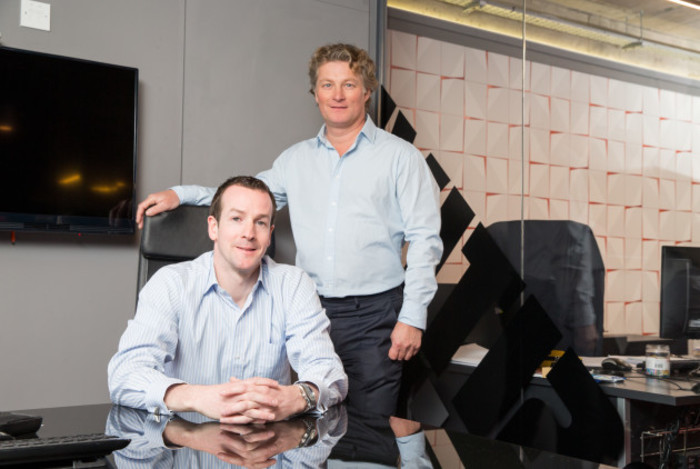 White with managing director Jim Aveling
White with managing director Jim Aveling
People can largely set their own hours and come and go as they please at the firm, although White emphasises that traders work long hours, often 12 hour days.
Savings on the table
Rather than getting paid a set salary, Positive Equity traders make their money based on how much they make from buying and selling financial instruments like bonds, stocks and equities.
Positive Equity puts up an initial fund, which the traders then use to try to make more money. Any profits that are made are split between the company and the trader.
“The starting point is that profits are split 50:50 in favour of the trader. That will increase as they go along,” White says. “Good traders earn a lot of money, they can earn more than management in a good year.”
The 37-year-old adds: “The initial capital is put up by the owners, me and the other two. In 2008 it was my life savings on the table.
“It didn’t seem like a risk at the time, we probably didn’t think it would be as hard as it was. Maybe that was because when you’re that young you’re a bit naive.”
Positive Equity remained small for years but began to grow slowly, taking on a few people here, a few there. The firm now has about 40 people, mostly self-employed traders, at its base in Dublin, as well as around 20 in Croatia.
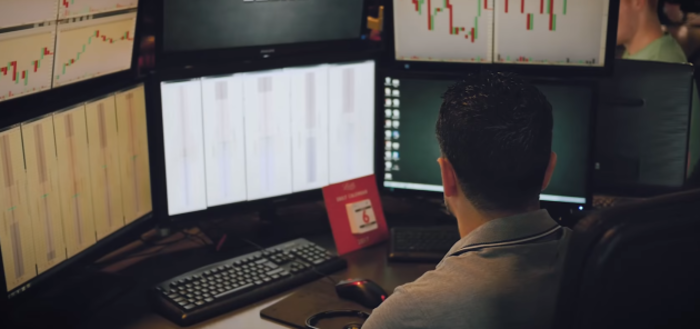 A Positive Equity trader
A Positive Equity trader
It’s been largely in the black since its inception, although it saw its funds dip in 2012 and 2014. In 2015 the firm reported a profit of €1.3 million to bring its accumulated profits to more than €2 million.
Trading floor
The company buys and sells anything and everything that can be traded on a regulated electronic stock exchange.
“Things like FTSE futures contracts, crude oil contracts, that kind of thing,” White says.
“The way I like to explain it is that when you’re watching TV and see the FTSE sign, we’re trading a piece of paper that represents that, the value of the 100 biggest companies in the UK.”
When most people think of stock trading floors, they likely think of traders bellowing across a crowded room at one another in a panic to make sure their deals are completed. However the reality, according to White, is more mundane.
“When the office is busy you can hear a pin drop. All you can hear is mouse buttons clicking,” he says.
He says while it might have been different in the 80s, in 2017 trading electronically on computers in near-silence is king.
Unlike someone like Warren Buffett, who can buy shares and hold them for years, Positive Equity mostly deals in relatively short trades – sometimes sitting on an asset for only hours or minutes.
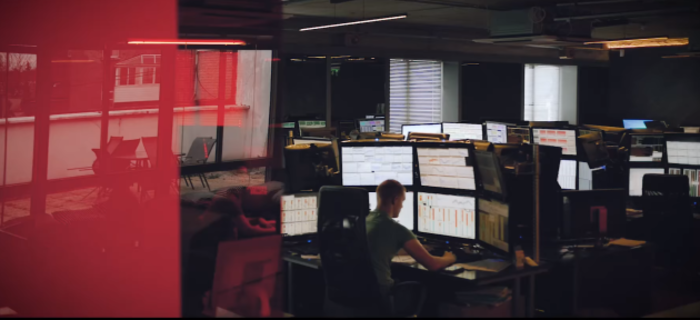 The Positive Equity trading floor
The Positive Equity trading floor
International competition
The company doesn’t trade shares on the Irish Stock Exchange, but does deals on other exchanges all over the world from its Dublin base.
Asked if it is difficult to compete with traders that are closer to the source of the action, such as those based in the UK and targeting the FTSE, White says: “I love dispelling that myth.
“Someone assumes because you’re in Dublin you’re out of the loop, it couldn’t be further from the truth. Can we compete on a world stage from Dublin? Yes, if we have technology equal to everyone else.
“Once the technology is there, it’s an open playing field. If we work hard and do research we will be better than those in London or New York. Our advantage is our research and our hard work.”
Stress and excitement
Positive Equity is now planning a big expansion. Following on from its new graduate programme, the firm is planning to add another 25 people to its operations over the next year and a half.
White says that while the firm has lone agents in a few different countries, the bulk of the expansion is likely to take place in Ireland.
“We’re at the stage where we can expand and we see no reason why we can’t do that in Dublin,” he says. “If we became one of the major independent trading firms in Europe over the next few years we would say that we’re doing something right.
“For that we would need a few hundred people. If we didn’t get to that size in five years there may be good reasons, but that is the target.”
While he still dreams of returning to the Amazon rainforest at some point, White has no plans to take a protracted break from the high-pressure world of trading.
“Absolutely not. You don’t make money every day, but you feel like you have your finger on the pulse of the world,” he says.
“It can be stressful, but one person’s stress is another person’s excitement.”
This article is part of our weekly series examining the nuts and bolts of businesses. If you would like to see your company featured please email news@fora.ie.
